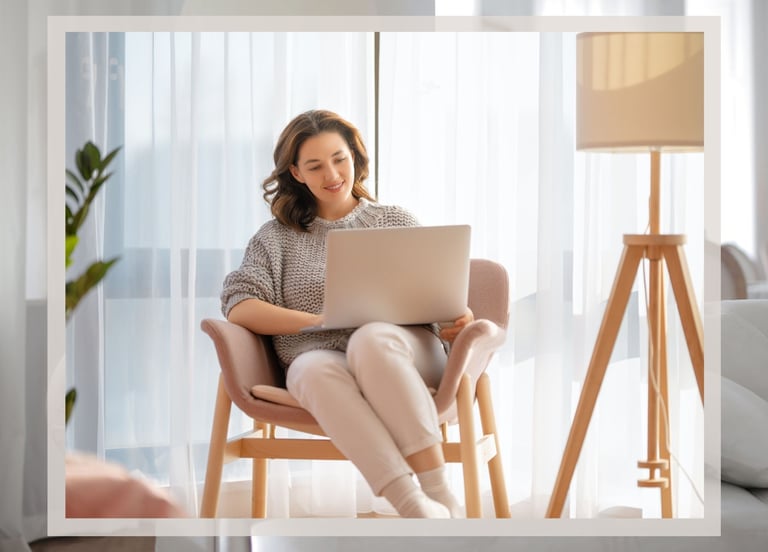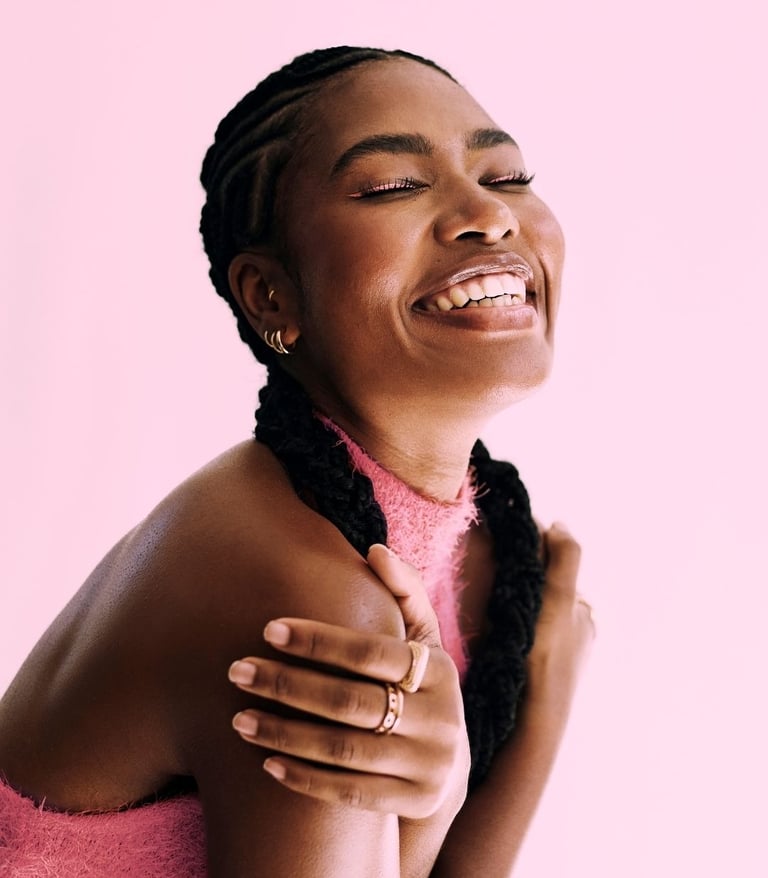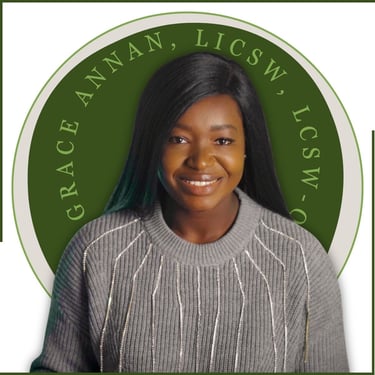Body Image Support Group for Washington DC Women
Virtual 8-Week Program
You transformed your body for health or personal reasons, but you still feel uncomfortable at DC networking events, avoid photos at professional gatherings, and decline social invitations because you don't feel confident in your appearance. Connect with other DC women who understand the unique pressures of living and working in the nation's capital.
For a comprehensive overview of the body image support group and how it works, visit my main group therapy page.
Virtual Support Perfect for DC’s Demanding Lifestyle
Washington DC women manage complex professional responsibilities, unpredictable schedules, and the social expectations that come with career advancement in the nation's capital. Between congressional schedules, client demands, and federal agency deadlines, finding time for in-person support groups feels nearly impossible.
Virtual participation solves this challenge completely. Join from your office near Farragut Square during a lunch break, connect from your Adams Morgan apartment after a long day on Capitol Hill, or participate from anywhere that offers privacy and comfort. No Metro delays, no parking challenges, no rushing between professional commitments.
Privacy matters especially in DC's interconnected professional community where personal information can impact career trajectories. Working on body image concerns from your own space provides the discretion that many DC professionals value when addressing personal challenges.




DC's appearance-conscious professional environment can intensify body image struggles, especially after significant physical changes. You might attend networking events at the Kennedy Center or embassy receptions where you feel hyperaware of how you look compared to other professionals, even though people compliment your transformation.
The constant presence of cameras and media attention in DC creates additional pressure. Whether it's work-related photography, social media documentation of professional events, or simply the reality that DC is a city where image matters for career advancement, body discomfort feels amplified.
You may find yourself declining invitations to important professional social events because you don't feel confident in your appearance, potentially limiting networking opportunities and career connections that matter in DC's relationship-driven professional landscape.
Body Image Challenges in DC’s Professional Culture
How Group Work Breaks Through Individual Limitations
Individual therapy often keeps you stuck in your own perspective, where critical thoughts about your appearance go unchallenged. Group work provides external reality that your brain can't dismiss as easily as your own positive self-talk.
Other DC women offer insights based on their own experiences with professional image pressures and personal transformation. This perspective becomes particularly valuable when it comes from women navigating similar high-stakes professional environments.
The shared experience creates understanding that individual therapy can't replicate. You'll discover that feeling disconnected from your changed body while working in image-conscious DC is a normal response, not evidence of personal failure or ingratitude.
Group Agenda
Awareness of Internal Struggles Identify the mental energy consumed by appearance management and body monitoring. This includes recognizing patterns like strategic positioning in professional photos, clothing choices based on concealment rather than style, and social avoidance due to body discomfort.
New Response Strategies Learn to experience body image discomfort without automatically reacting to manage or eliminate it. Practice making decisions about professional events, social gatherings, and daily activities based on your career goals and personal values rather than appearance anxiety.
Integration Focus on engaging fully in DC's professional and social opportunities according to what advances your career and personal satisfaction, not what minimizes body image discomfort.
Success Stories from DC Participants
Women completing the program typically report attending professional events throughout DC with focus on career objectives rather than appearance management. They participate confidently in work-related social functions from Capitol Hill receptions to downtown networking dinners.
They make clothing choices based on professional image and personal style rather than body concealment. Professional photography and social media no longer trigger anxiety that limits their career visibility and advancement opportunities.
Mental energy previously consumed by body image concerns gets redirected toward career development, policy work, and professional relationships that matter for long-term success in DC's competitive environment.
Program Investment and Structure
Format: 8 consecutive weekly sessions, 50 minutes each, via secure HIPAA-compliant platform
Participants: Maximum 10 DC area women per group
Cost: $800 (full payment required at enrollment)
Requirements: Commitment to all 8 sessions with active group engagement
This intensive approach requires both financial investment and emotional commitment. DC women who achieve lasting change understand that meaningful transformation requires sustained focus rather than sporadic attention to the issue.
Who Is This Group For?
This group works best for women who:
Have made significant, lasting changes to their body but continue struggling with body image
Find body discomfort limiting their professional or social engagement in DC
Want therapeutic intervention rather than general support or motivational approaches
Can commit to attending all sessions and participating meaningfully in group discussions
Are not currently dealing with eating disorder behaviors or acute mental health crises
Frequently Asked Questions from DC Residents
What mental health resources are available in Washington, DC?
For immediate help in Washington, DC, dial or text 988 to reach the 988 Lifeline or visit 988lifeline.org/chat for support. You can also call the DC Crisis Hotline at 1-888-793-4357 for 24/7 local crisis intervention services.
For general mental health resources, please see: NAMI DC, the DC Department of Behavioral Health, or visit the DC Access HelpLine at dcaccess.org for provider directories and more information.
What if my schedule changes due to Congressional sessions or work emergencies? While consistent attendance is required, the virtual format provides more flexibility than in-person groups for managing DC's unpredictable professional demands.
Is this program covered by federal employee benefits? This is private pay only, though many federal employees successfully use FSA or HSA accounts. No insurance billing is provided.
How does this approach differ from body acceptance programs I've encountered? Rather than trying to change your thoughts about your body, this program helps you stop fighting those thoughts so they have less power over your professional and personal choices.
Stop letting body image concerns limit your engagement in DC's professional opportunities and social connections. Reserve your seat in the next group through online registration, or contact me with questions about the group process and outcomes.
Do you offer one-on-one therapy in addition to group support?
Yes. While I run a specialized Body Image Support Group online for adults living in DC, I also provide individual ARFID therapy sessions. Many clients find that combining group support with personalized one-on-one therapy accelerates their progress and addresses their specific needs. You can learn more about my individual ARFID therapy services here.
Confidential virtual support for women throughout the Washington DC metropolitan area
About Me
I’m Grace Annan, a licensed therapist specializing in eating disorders, with a particular focus on adults living with ARFID. My approach combines evidence-based treatment with compassion and practical support, helping clients move at a pace that feels safe while working toward meaningful change. I’m committed to providing clear, effective strategies that address the challenges of ARFID and support lasting progress.




